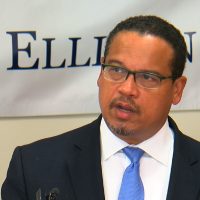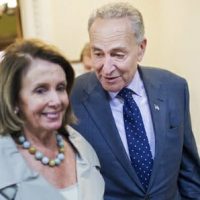The first public hearing of the new Joint Select Committee on Budget and Appropriations Process Reform will take place on Tuesday.
The committee was established in February by the Bipartisan Budget Act of 2018 and is made up of 16 members (eight Democrats and eight Republicans) equally divided between the House of Representatives and the Senate.
You can probably guess, given the creative naming, that the committee is charged with coming up with reforms to the budget and appropriations processes. It will have until the end of November to develop proposals if the expedited process for consideration, established by the 2018 Bipartisan Budget Act, is to be enabled. However, whatever it comes up with will still require 60 votes to pass the Senate.
This is a significant undertaking. The committee must decide whether to scrap the current process established by the Congressional Budget Act of 1974 or to simply amend it so that the law is actually followed in practice.
For instance, the Congressional Budget Act requires the House and Senate to adopt a concurrent budget resolution by April 15. Both chambers ignored that requirement altogether this year.
A major problem that the committee will find is that although many members are frustrated with the current budget and appropriations processes, their displeasures are derived from different motives.
There are those who want to reinvigorate the practice of earmarking because it will give more people in Congress the “skin in the game” needed to support each appropriations bill. Members of Congress will be hard-pressed to reject a spending bill if it also funds an important project close to home.
But should the goal of the process be to produce massive bills that hand out stuff to everyone involved? I would hope not—especially during a time when Congress seems reluctant to impose any serious forms of budget restraint.
There are others who want to limit the requirement to pass a budget every two years. The argument is that Congress will spend one year budgeting and the other year conducting oversight.
But congressional oversight is independent of the budget process. The Government Accountability Office—Congress’ own in-house appropriations “watchdog”—provides many excellent suggestions to reform programs that are often ignored. And good oversight is usually derived by dedicated and diligent staff who stay on top of the departments and agencies.
The oversight function is unlikely to improve by setting aside one out of every two years to review programs. Congress should be able to simultaneously review programs and allocate resources.
See the full story here.
Want more BFT? Leave us a voicemail on our page or follow us on Twitter @BFT_Podcast and Facebook @BluntForceTruthPodcast. We want to hear from you! There’s no better place to get the #BluntForceTruth.







